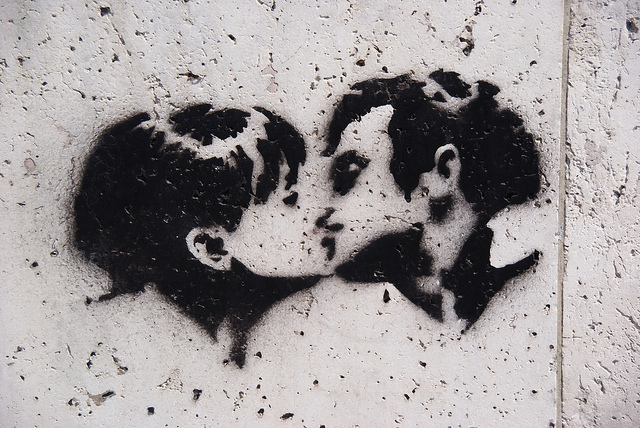If you are one of the select few who have been in serious partnerships, and who have not experienced the slamming of doors, hanging up of phones, silent treatment, or worse—maybe you don’t need to read this article.
For the rest of us—what exactly is drama? What does it even mean to be in a “drama-free” relationship?
Some might consider having to deal with conflict in general as having to put up with drama.
Others may even consider confrontation and the healthy expression of emotions to be drama as well.
If we put this in terms of movie genres, the dramas are typically a lot more bland than say the thrillers, mystery movies, or rom-coms. Some drama in relationships bears even more semblance to horror movies, sadly.
A beautiful but extremely difficult truth though, is that our relationships are our teachers. We so often blame the other person for their role in the dynamic without seeing what we are doing to feed what sometimes are vicious cycles. Even if the actions which threaten to destroy the relationship are those of our partner, we still partake in the situation out of our own free will.
We choose it—and if we are not choosing it, if we have gone on auto-pilot and just default, practically, to going through the motions then this will contribute to problems as well.
So to look at ourselves and determine what exactly is going on during these situations is crucial if we are ready for drama-free living.
First, we need to determine if we really want to be in the relationship. A clear way of doing this is to look at the dynamic and to calculate if both of ourselves being together is actually beneficial.
Is the relationship so draining and difficult that it is taking away from who we are as a person? Does the two of us together not even make up the sum of our parts, and together add up to not even two fully operative human beings?
If the relationship is worth continuing, the tricky part is then to find that absolute healthy place where you are both able to express and communicate your emotions without going overboard.
If this is not happening—if one of you is perhaps closing down and the other one over-reacting, then this needs to be examined with as much grace as possible.
These patterns are difficult to break, but it can be done.
Situations can not be intentionally changed if they are not first seen.
The break downs which lead to most drama are typically caused by either assumptions, disappointments, or our projection of expectations onto someone—and our projecting unrealistic expectations onto our partner is just as unfair to them as it ends up being to us in the long run.
When these break-downs occur, we need to ask ourselves if we are experiencing emotions that need to be released and if there is healing that is needed.
After all, emotions are just energy in motion.
Suppressing this energy—be it as a result of fear, shame, anger, or anything else—will affect our moods, thoughts, and perhaps even our health, if this is not cleared up in a healthy way.
If we can deal with this energy—these emotions—on our own, then so be it. We do not always need to communicate with our partner on these matters, we have the potential to take care of these things by ourselves sometimes.
But, if this is not the case, in the event that they are not even aware that they did something that perhaps hurt us, odds are likely that this could become a trend if it is not addressed. Then it is best to proceed into the matter in a calm, intentional, emotionally appropriate manner.
We need to remember during these times that most of what we feel the most deeply, we have felt before, perhaps even over and over in more than one relationship or even as a result of the actions of our parents. We may have unresolved frustration over a hundred other things and at times it can all come spilling out over something as simple as dishes in the kitchen sink.
It is so important to be able to go inward during highly emotional times. “Feel in order to heal,” as they say. Label the emotions, if needed, and ask ourselves if what we are really angry or hurt about is really over the matter at hand or not.
Ridding our relationships of excess drama means that both parties involved in the relationship need to do what they can to neither over-react—picture crying on the bathroom floor over something rather trivial, or under-react—perhaps someone who allows themselves to feel nothing, to experience no empathy when their partner is hurting over something.
Emotions are healthy and normal—they seem to get the bad wrap, especially for women, but just like pain and everything else in our lives, they are there to teach us something, like a navigational tool. We are not our emotions, they just flow through us like the blood through our veins, and they do not need to be stuck or suppressed if we can allow ourselves to feel them and learn from them.
The key is to be brave enough to not be afraid of what our emotions are trying to tell us—this is just information and we can approach these matters with curiosity. So many of us do so much work to actually run away from our emotions—we drink or turn to other addictions, we stay really busy, we all have different means at times of running from feeling.
We can really lean in to listen to what we can learn and make adjustments accordingly in a means of responding to a situation, rather than reacting to a situation in a manner that will just escalate the drama.
Those times that we perhaps find ourselves in a mess on the bathroom floor—we have choices.
We can choose to see if we have come to believe something about ourselves which is not true, we can choose to see if our relationship is toxic and our emotions are telling us that the pain we are feeling is too much to bear. If so we can choose to leave the relationship. We can choose to see what it really is that we are needing to feel at that moment, maybe it is something that surprisingly has nothing to do with our partner, and we can choose to discern whether it would be best to just pick ourselves up to go for a walk or to practice some yoga as a means of moving some of that energy out of our systems.
When, and if, we can find that place of being able to both feel our emotions in a balanced and healthy way, there is always the potential for both partners to experience a bond that is as deep as the deepest waters in our oceans. After all, emotions are meant to flow just as water, and water has the power to heal—but too much of it can be overwhelming in the most dramatic of fashions.
To rid your relationship and your life of drama, both discernment and intentionality are key. We discern when and how these emotions are needing to flow and learning from what they are trying to tell us. Then being as intentional and loving when choosing—because we get to choose, in how we respond.
Relephant:
Real Adults Don’t Do Drama.
~
Author: Katie Vessell
Editor: Travis May
Photo: Flickr/Julian Mason











Read 0 comments and reply